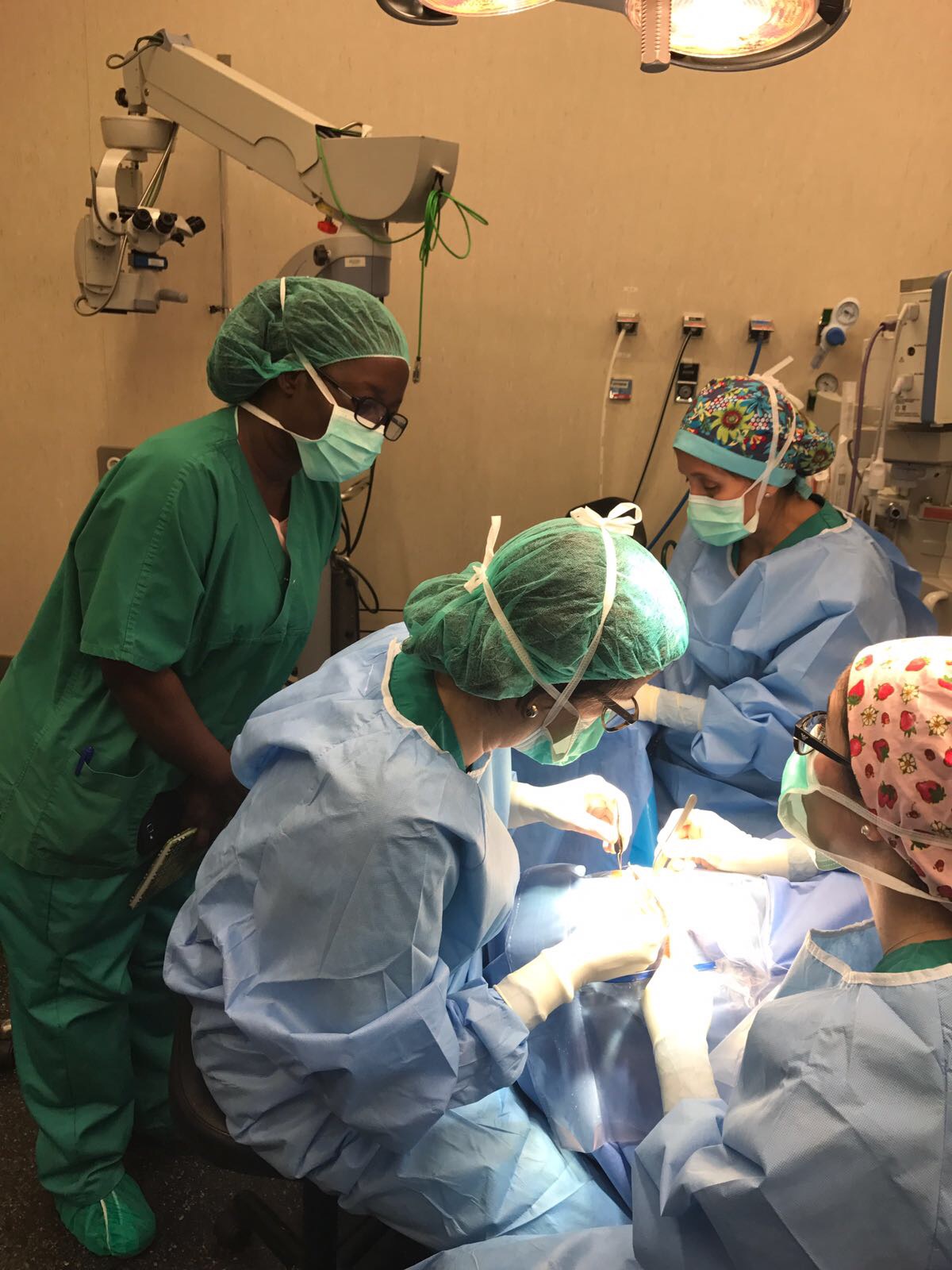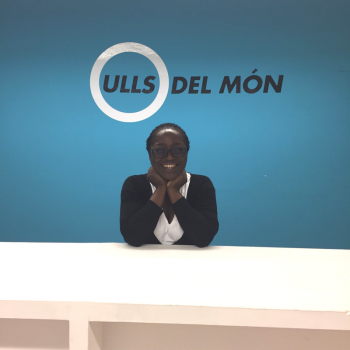Dr. Fatoumata was born in Bamako (Republic of Mali). She works as a pediatric ophthalmologist in the African Tropical Ophthalmology Institute (IOTA) in Bamako. She was our guest in Barcelona to offer her training in that medical specialty in IMO, in Sant Joan de Déu Hospital, and in Dr. Noguer’s office, in keeping with Eyes of the world’s training policy for local talent.
Why did you decide to specialize in pediatric ophthalmology?
When I was a student, it was a new specialty with many opportunities. Back then, few ophthalmologists were interested in treating children specifically. But, to me, promoting eye health among children was an essential specialty. In fact, it still is, as 50% of the population in Mali is under fifteen.
As a pediatric ophthalmologist, what are your professional goals and challenges?
My goal is to set up a quality eye healthcare system for children, focusing on serious conditions like cataract, glaucoma, strabismus, ptsosis o retinoblastoma, beginning with IOTA’s reference center and then spreading to secondary centers.
I’d like also to set up a medical examination system for children’s eye diseases, covering from peripheral structures (schools, clinics) to eye healthcare units.
Finally, it would be good to train health professionals (pediatricians, doctors, midwives, nurses…) so they can recognize potentially serious eye illnesses in children.
What are the challenges you face when pursuing your career and completing your education?
First, there’s the lack of specialized technical personnel. There are only two pediatric ophthalmologists in the whole country (which has a population of 16 million people). Currently, we don’t have enough human resources to form a pediatric team with an anesthetist, an optometrist, a psychologist… This severely restricts the quality of our assistance.
We lack equipment as well. The pediatric ophthalmology ward in IOTA is poorly equipped. We don’t currently have yet the required resources to guarantee an adequate healthcare: the diagnostic kits are old, and surgical equipment is clearly insufficient.
On top of that, our technical staff doesn’t benefit from permanent training: there are increasing difficulties for students from Southern countries to study in “developed” ones. The few opportunities available are reduced to practical observational work. This is delaying the acquisition of knowledge about new techniques.
What are the reasons that bring people to doctors’ practices?
According to different reports of activity in our ward, the main causes for children to visit are conjunctivitis (allergies and infections), cataract, glaucoma and ametropia.
What does studying in Spain mean to you, both professionally and personally?
Professionally, this practical training has allowed me to improve the abilities I already had, and to compare my way of working to other possibilities. And, besides that, it has given me the chance to see what I didn’t know yet or didn’t know how to do.
Which aspects of these studies are, in your opinion, the most remarkable? Do you think you can apply all this learnings in Mali?
Being able to be in different centers it’s what is remarkable. It would be too pretentious to say that I can apply there what I have seen. In terms of surgical procedures, I’ve learned many “tricks” which will improve my performance. More coaching will be needed, however, in some other techniques.
What do you think about Eyes of the world’s assistance to the most vulnerable population in Mali?
I admit I had little information about Eyes of the world’s activities in the Mopti region, so it has been extremely pleasant to discover all the work they are doing.
Regarding Eyes of the world’s work in IOTA, it taught me how to perform lid, strabismus and tear duct surgery, thanks to the chirurgical missions Eyes of the world had organized. Besides that, our colleague Dr. Guindo’s training has made it possible for retinal detachment surgery to be performed in Mali. The level of patient care has improved because of those trainings.
How do you think eye healthcare can be improved in Mali? Would you send a message of optimism?
To improve eye healthcare first you need to improve the quality of human rights: a good education is a guarantee. It’s not only about training doctors but to educate teams, ranging from ophthalmologists to maintenance technicians. A quality healthcare comes after that.
Eye health is slowly but steadily moving forward in Mali.
